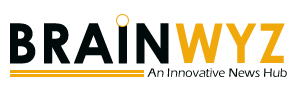In the current employment environment there is a tendency for people to change careers, with around 60% of adult workers experiencing these changes in the past. This is a clear indication of the importance of being flexible and adaptable when working.
Many people change their careers due to diverse reasons, including seeking to advance professionally or due to the changing trends in their field. Being able to make the transition successfully is vital. The most effective strategies are constantly developing new skills and staying current with trends in the field. Additionally, having an established professional network can lead to new opportunities and provide insight on different options for career advancement.
This blog will look at practical ways to ensure that your career change is as smooth and as successful as is possible. So keep an eye out for tips that can help transform your career path.
Investigate and Discover: Choosing the Correct Fit
One of the most important steps to successfully transitioning between professions is to conduct research and consider possible career options. Find out about the industries and jobs that match your skills and preferences. This could include reading about different areas, speaking with professionals in these fields and keeping up-to-date on industry trends. Conducting thorough research will ensure that you make an informed decision and choose a path to a career that is compatible with your professional and personal objectives as well as your abilities.
Furthermore, gaining knowledge in your field is beneficial. Consider internships or volunteering as an opportunity to broaden your skills. For instance, if you’re in search of an internship within one of the most prestigious industries in the world today firms, such as Dot Foods, offer opportunities that may align with your ambitions and goals. Being one of the biggest food industry distributors within North America, Dot Foods offers part-time employment as well as internships that are ideal to gain practical experiences, gaining business knowledge and expanding connections in your career.
These experiences provide you with an knowledge of the field and enhance your resume. These experiences give you the chance to meet with professionals in the field and could be an stepping stone towards full-time employment.
Self-Evaluation: Recognizing Your Fundamental Knowledge and Interests
Another crucial aspect to consider when changing career paths is to self-assess. The process requires introspection to identify your talents as well as your interests and values. It’s essential to know the areas you excel at and what you like doing.
Reminisce about your past experiences and think about the jobs as well as projects which were the most satisfying. This exploration helps to identify transferable skills that could be beneficial in your new profession. Knowing your strengths can not only lead you to the right career path but also help you build confidence when you begin this new adventure.
Networking: Creating Connections in Your New Sector
Networking is a crucial element for career advancement. Establishing relationships with people in your field of choice can give you advice, insights and even job openings. Begin by interacting to industry professionals via social media platforms such as LinkedIn and attending industry-related events, and signing up to appropriate online communities or forums. It’s not just about pursuing job opportunities, it’s about learning from other’s experiences and gaining a better understanding of the culture and expectations.
Learning and Developing Skills
The transition to a new job usually requires you to improve your skills or knowledge base. It could involve continuing education. This may range from short-term classes and certificates to more thorough degree courses. Making the decision to take online classes is a viable choice as they provide the opportunity to learn new skills while retaining your current obligations.
It’s crucial to establish the most essential skills for your chosen career path and continuously seek out opportunities to build these skills. Continuous learning and development of skills is essential to adapt to the ever-changing nature of the market for jobs.
Furthermore connecting with experts in your field of choice, participating in industry events and being updated on the latest trends can help your education and offer an all-encompassing method for your career change.
Creating a Cover Letter and Resume for a Career Change
When you are preparing to enter the world of professional development making your resume and cover letter is essential to highlight the transferable skills you have and relevant experience. Focus on showcasing skills that match the requirements of the new sector, and clearly demonstrate how your previous experience is in line to the needs of the new job. In your letter of introduction, you must be sure to state your reasons for switching careers and explain how your personal experience will prepare you for the job.
It is also beneficial to mention any training or educational experience which can aid your transition. It is important to show your enthusiasm about the new career and explain your knowledge of the recent trends and challenges. This strategy not only showcases your abilities but also your enthusiasm and proactive attitude towards adjusting to a new career route.
Conclusion
Making the transition from one career to another is a major decision which requires careful preparation and commitment. If you are aware of your abilities and researching possible jobs, enhancing your education, increasing your experiences, and adjusting the materials you use to apply for jobs to help you manage this transition with greater ease. Be aware that a career change isn’t just an opportunity to change jobs; it’s an opportunity to fulfill your professional ambitions. If you’re embarking on this path, stay open to learning and able to change and you’ll be on the way to a successful career change.

